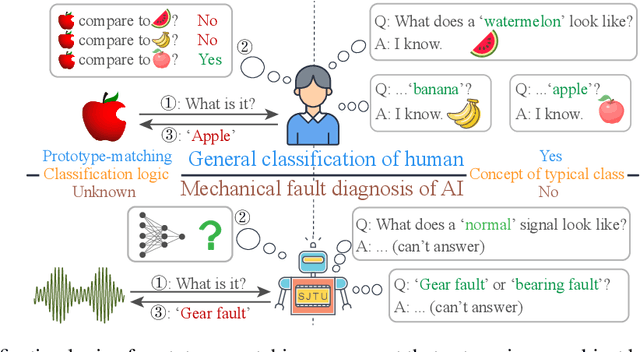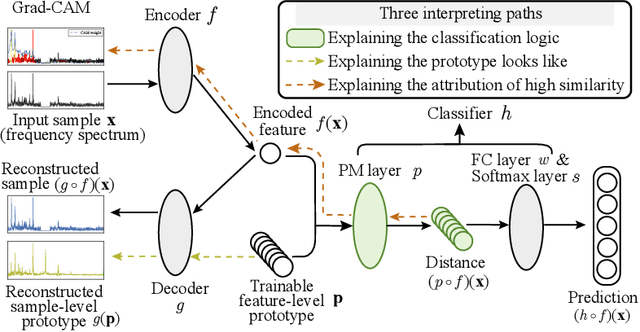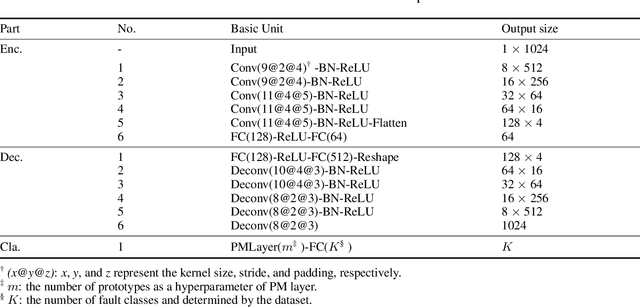Interpreting What Typical Fault Signals Look Like via Prototype-matching
Paper and Code
Mar 11, 2024



Neural networks, with powerful nonlinear mapping and classification capabilities, are widely applied in mechanical fault diagnosis to ensure safety. However, being typical black-box models, their application is limited in high-reliability-required scenarios. To understand the classification logic and explain what typical fault signals look like, the prototype matching network (PMN) is proposed by combining the human-inherent prototype-matching with autoencoder (AE). The PMN matches AE-extracted feature with each prototype and selects the most similar prototype as the prediction result. It has three interpreting paths on classification logic, fault prototypes, and matching contributions. Conventional diagnosis and domain generalization experiments demonstrate its competitive diagnostic performance and distinguished advantages in representation learning. Besides, the learned typical fault signals (i.e., sample-level prototypes) showcase the ability for denoising and extracting subtle key features that experts find challenging to capture. This ability broadens human understanding and provides a promising solution from interpretability research to AI-for-Science.
 Add to Chrome
Add to Chrome Add to Firefox
Add to Firefox Add to Edge
Add to Edge